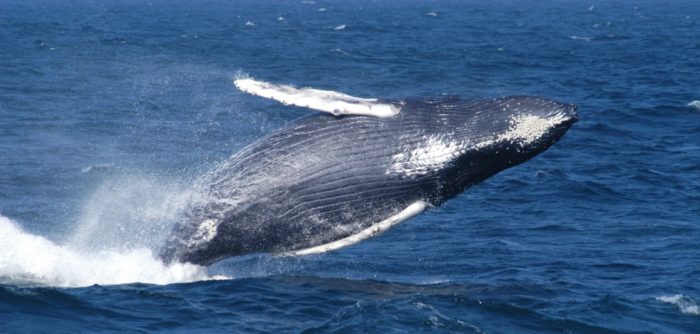The Fin Whale (Balaenoptera physalus) is now listed as Vulnerable, previously listed as Endangered, in the International Union for Conservation of Nature (IUCN) Red List, according to recent update, as the global population of the species has roughly doubled since the 1970s.
The recovery of the Fin Whale population follows international bans on commercial whaling in the North Pacific and in the Southern Hemisphere, in place since 1976, and significant reductions in catches in the North Atlantic since 1990. The status of the western subpopulation of the Gray Whale (Eschrichtius robustus) has also improved, moving from Critically Endangered to Endangered. Both of these whale species were historically threatened by overexploitation for their blubber, oil and meat.
Fin Whales and Western Gray Whales were severely depleted by hunting, and it is a relief to finally see their populations on the rise. These whales are recovering largely thanks to bans on commercial hunting, international agreements and various protection measures. Conservation efforts must continue until the populations are no longer threatened.
Randall Reeves, Chair of the IUCN SSC Cetacean Specialist Group said.
The nearly complete protection of Fin Whales throughout their range has allowed the global population to reach around 100,000 mature individuals. Western Gray Whales have been protected from commercial whaling in almost all range state since 1980, but only recently has there been clear evidence of increasing numbers in the western Pacific, particularly off Sakhalin Island, Russia. The delay between conservation measures taking effect and the detection of whale recovery is due, in part, to these animals’ slow rate of reproduction.
Japan, the Russian Federation, the Republic of Korea, the USA and Mexico are five Gray Whale range states which have signed a Memorandum of Cooperation Concerning Conservation Measures for the Western Gray Whale Population. Industrial activity including oil and gas development and commercial fisheries also represent a potential threat to Gray Whales.
Since 2004, an IUCN-led independent panel of scientists has been advising Sakhalin Energy on how to manage the potential impacts of its activities on the whales.





























































